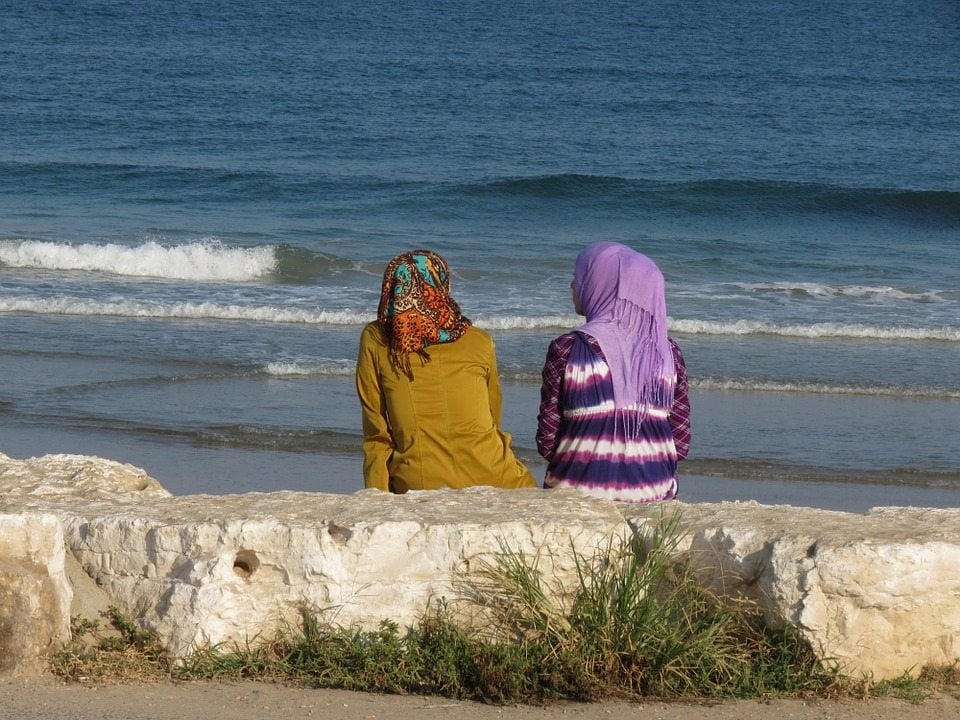Can Women Pray Standing in Public?
Hanafi Fiqh
Answered by Shaykh Abdul-Rahim Reasat
Question: Assalamu alaykum
I was recently traveling with a friend. At the airport she said that women are not supposed to pray standing so she sat on the chair and prayed. I wasn’t sure if that was true. Also it was an empty part of the airpot and we were sitting with our backs to the wall. I got doubts so decided to sit. Was I right to pray like this?
Answer: Wa ‘alaykum as-salam wa rahmatullah wa barakatuh
Thank you for your question.
Standing in the prayer.
The default ruling of the prayer is that one performs the prayer standing. Sitting is only allowed if one is ill, or if standing will worsen an illness, or delay the recovery from it. So in this situation I’m afraid your prayer was not valid. You will have repeat the prayer.
Obedience and Modesty combined
The mechanics of the prayer of ladies is such that the movements do not exaggerate the display of any part of their bodies as they bow and prostrate before the perfection and majesty of Allah Most High. This is why they do not need to bow as low as men, for example. This is a huge blessing from Allah as it saves them from the embarrassment they could experience if they had to pray as men do in a public setting. It is the perfect balance between worshipping Allah out of obedience no matter where one is, and maintaining one’s modesty, which is part of faith and one’s nature.
Always learning.
I recommend that you and your friend study the fiqh of the prayer, and repeat it if you have done so. Many a time details learned in the past, if not reviewed, end up being altered in our minds, which can lead to the above scenario. One’s relationship to Sacred Knowledge should be constant in some form or another, and having a teacher means one can ask about one is confused or curious about.
May Allah grant you the best of both worlds.
Wassalam,
[Shaykh] Abdul-Rahim Reasat
Shaykh Abdul-Rahim Reasat began his studies in Arabic Grammar and Morphology in 2005. After graduating with a degree in English and History he moved to Damascus in 2007 to study and sit at the feet of some of the most erudite scholars of our time.
Over the following eighteen months he studied a traditional curriculum, studying with scholars such as Shaykh Adnan Darwish, Shaykh Abdurrahman Arjan, Shaykh Hussain Darwish and Shaykh Muhammad Darwish.
In late 2008 he moved to Amman, Jordan, where he continued his studies for the next six years, in Fiqh, Usul al-Fiqh, Theology, Hadith Methodology and Commentary, Shama’il, and Logic with teachers such as Dr Ashraf Muneeb, Dr Salah Abu’l-Hajj, Dr Hamza al-Bakri, Shaykh Ahmad Hasanat, Dr Mansur Abu Zina amongst others. He was also given two licences of mastery in the science of Qur’anic recital by Shakh Samir Jabr and Shaykh Yahya Qandil.
His true passion, however, arose in the presence of Shaykh Ali Hani, considered by many to be one of the foremost tafsir scholars of our time who provided him with the keys to the vast knowledge of the Quran. With Shaykh Ali, he was able to study an extensive curriculum of Qur’anic Sciences, Tafsir, Arabic Grammar, and Rhetoric.
When he finally left Jordan for the UK in 2014, Shaykh Ali gave him his distinct blessing and still recommends students in the UK to seek out Shaykh Abdul-Rahim for Quranic studies. Since his return he has trained as a therapist and has helped a number of people overcome emotional and psychosomatic issues. He is a keen promoter of emotional and mental health.
